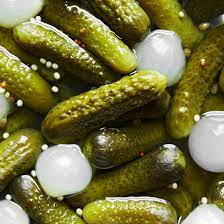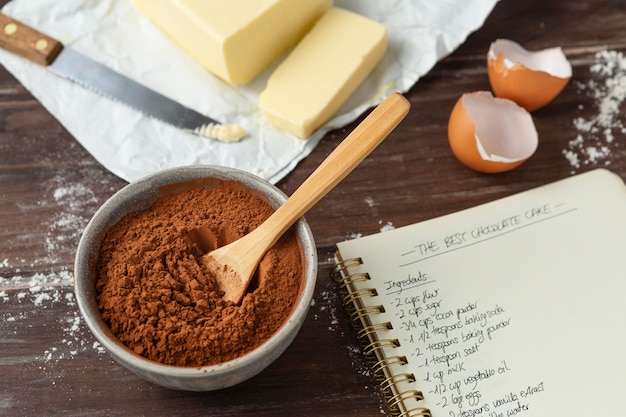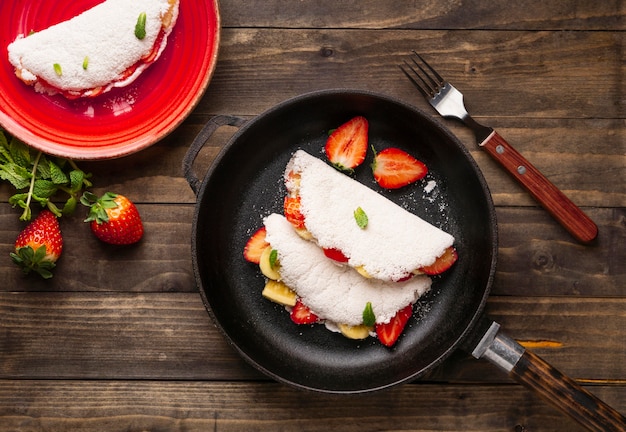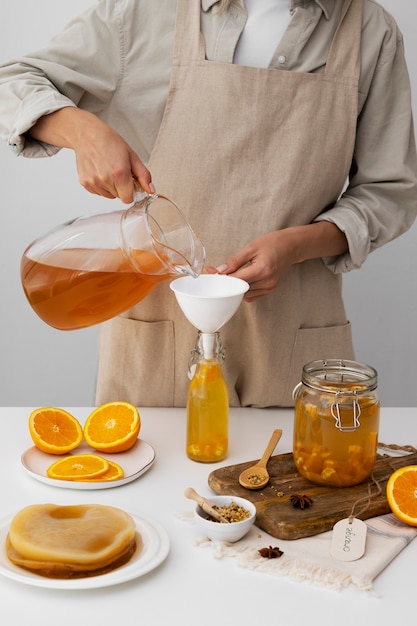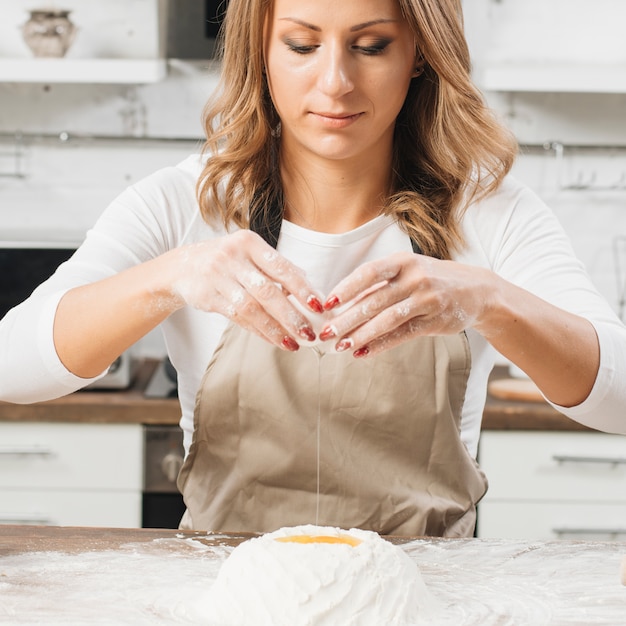How Long Do Pickles Last? Everything You Need to Know about Pickle Shelf Life
When it comes to pickles, many people wonder about their shelf life. Pickles are a popular condiment that can be found in pantries and refrigerators all over the world. They come in many different varieties, from dill to sweet to bread and butter pickles. But how long do pickles actually last?
The answer to that question depends on a few factors. Firstly, it’s important to note that pickles are preserved in vinegar or brine, which helps to extend their shelf life. The acidity of the vinegar or brine creates an inhospitable environment for bacteria to grow, which helps to prevent spoilage. However, even with the preservative properties of vinegar or brine, pickles won’t last forever.
In general, unopened pickles can last for about 1-2 years past their expiration date if stored properly in a cool, dark place. However, once the jar has been opened, the pickles should be refrigerated and will typically last for several months. It’s important to note that the quality of the pickles may decline over time, as they can become less crisp and flavorful the longer they are stored.
How Long Do Pickles Last?
Pickles, both homemade and store-bought, have a relatively long shelf life. However, their longevity depends on various factors, including the type of pickle and how they are stored.
Generally, unopened jars of pickles can last for about 1-2 years when stored properly in a cool and dark place. This is due to the high acidity and salt content in pickles, which act as natural preservatives.
Once opened, pickles can last for several weeks to a few months in the refrigerator. It is essential to keep the pickles submerged in the brine and ensure the jar is tightly sealed to maintain their freshness and prevent spoilage.
However, it’s important to note that the quality and taste of pickles may deteriorate over time. They may become less crunchy and lose their vibrant color as they age. If you notice any signs of mold, foul odor, or significant changes in taste, it’s best to discard the pickles.
Additionally, homemade pickles, especially those made through the process of fermentation, can last even longer. Fermented pickles can continue to develop their flavors over time and can be stored in the refrigerator for up to several months.
In summary, the shelf life of pickles can vary depending on whether they are store-bought or homemade and how they are stored. It’s always best to check the jar’s label for any specific guidelines from the manufacturer and trust your senses to determine if pickles are still safe to consume.
Factors That Affect Pickle Shelf Life
While pickles are known for their long shelf life, several factors can affect their overall quality and duration of storage. It’s essential to understand these factors to ensure that your pickles remain safe to eat and maintain their taste and texture over time.
1. Ingredient Quality
The quality of ingredients used in pickling plays a significant role in determining the pickle’s shelf life. Fresh and high-quality cucumbers, vinegar, herbs, spices, and other ingredients ensure better preservation and flavor retention. Inferior quality ingredients may result in the growth of bacteria and spoilage.
2. Food Preservation Methods
The method chosen for pickling, whether it’s fermentation or vinegar brining, can impact the shelf life. Fermented pickles typically have a longer shelf life as the natural fermentation process creates an acidic environment that inhibits the growth of harmful bacteria. On the other hand, vinegar brined pickles have a shorter shelf life as they rely on the acidity of the vinegar for preservation.
3. Storage Conditions
The storage conditions for pickles are crucial in determining their shelf life. Pickles should be stored in a clean, airtight jar or container, away from direct sunlight, heat, and temperature fluctuations. Exposure to oxygen, light, and heat can lead to spoilage and flavor deterioration over time.
4. Proper Sealing and Packaging
The way pickles are sealed and packaged also affects their shelf life. A proper seal helps prevent the entry of air and contaminants, which can contribute to spoilage. Using high-quality lids, seals, or vacuum sealing can enhance the preservation and extend the shelf life of pickles.
5. Quality of Water Used
The quality and source of water used in pickling can impact the pickle’s shelf life. Using filtered or distilled water is recommended to prevent any impurities, such as minerals or bacteria, that can affect the pickles’ quality and longevity.
To ensure the best possible shelf life for your pickles, it’s essential to follow proper pickling procedures, use quality ingredients, and store them under optimal conditions. By paying attention to these factors, you can enjoy your homemade pickles for an extended period.
Can Pickles Go Bad?
While pickles can have a long shelf life, they can still go bad under certain circumstances. The main factors that determine the shelf life of pickles are the type of pickles and the storage conditions.
The type of pickles, whether they are made with vinegar or fermented, plays a significant role in their shelf life. Fermented pickles have live cultures that help preserve them for longer periods. These pickles can last for a year or even longer if stored properly. On the other hand, pickles made with vinegar are less likely to spoil, but their quality might deteriorate after a few months.
The storage conditions also play a crucial role in determining the shelf life of pickles. Pickles should be stored in a cool and dark place, away from sunlight and heat sources. Exposure to light and heat can speed up the spoilage process and cause the pickles to go bad. It is also important to keep the pickles in a tightly sealed container to prevent air and moisture from getting in.
Signs of pickles going bad include a foul odor, mold growth, sliminess, or a change in texture and color. If you notice any of these signs, it’s best to discard the pickles to avoid the risk of foodborne illnesses.
In conclusion, while pickles can have a long shelf life, they can still go bad. It is important to store pickles properly and check for signs of spoilage before consuming them.
Signs That Pickles Have Gone Bad
Pickles are generally known for their long shelf life, but they can go bad if not properly stored or if they have been sitting opened in the refrigerator for too long. Here are some signs to look out for to determine if your pickles have gone bad:
1. Unusual odor: If your pickles have a strange or off-putting smell, it’s a clear indication that they have spoiled. The vinegar smell should be tangy and pleasant, and any sour or foul odor is a sign of spoilage.
2. Mold or discoloration: Check the surface of the pickles for any signs of mold growth. Mold can appear as white, green, or black spots. Additionally, if the pickles have a slimy or discolored appearance, it’s best to discard them.
3. Texture changes: Good pickles should have a crisp texture. If they have become mushy or soft, it means they are no longer fresh and have started to deteriorate.
4. Bubbling or fizzing: If you notice any excessive bubbling or fizzing when you open the jar, it could be a sign that the pickles have fermented and are no longer safe to eat.
5. Off taste: When pickles go bad, their taste can change significantly. If they taste off, excessively salty, or have a spoiled flavor, it’s best to err on the side of caution and throw them away.
Remember, consuming spoiled pickles can lead to foodborne illnesses, so it’s important to recognize these signs and prioritize your safety when consuming pickled products.
How to Store Pickles to Extend Shelf Life
Proper storage is essential to maximize the shelf life of pickles. Here are some guidelines to help you store pickles and ensure their quality:
1. Choose the right container: Pickles should be stored in jars or containers that are made of glass or food-grade plastic. Avoid using metal containers, as they can react with the vinegar and affect the taste and quality of the pickles.
2. Keep them in a cool and dark place: Pickles should be stored in a cool and dark place, such as a pantry or cellar. Exposure to heat and sunlight can cause the pickles to spoil faster.
3. Seal the container tightly: Make sure that the jar or container is tightly sealed to prevent air and moisture from entering. This will help maintain the crispness and flavor of the pickles.
4. Store them in the refrigerator after opening: Once you have opened a jar of pickles, it should be stored in the refrigerator. Refrigeration helps slow down the growth of bacteria and keeps the pickles fresh for a longer period.
5. Avoid cross-contamination: To prevent the growth of bacteria and preserve the taste of pickles, make sure to use clean utensils when handling them. Avoid touching the pickles with your hands to minimize the transfer of bacteria.
6. Check for signs of spoilage: Before consuming pickles, always check for signs of spoilage, such as mold, off odors, or a slimy texture. If you notice any of these signs, it is best to discard the pickles to avoid foodborne illnesses.
By following these storage guidelines, you can extend the shelf life of pickles and enjoy their crispness and flavor for a longer period.
How Long Can Pickles Be Stored?
Pickles can be stored for a significant period of time if proper measures are taken to preserve them. The shelf life of pickles can vary depending on various factors such as the type of pickle, the ingredients used, and the storage conditions.
In general, commercially processed pickles that are properly sealed and stored in a cool, dry place can last for about 1-2 years. These pickles are usually made using vinegar or brine, which act as natural preservatives.
Homemade pickles, on the other hand, may have a shorter shelf life as they may not have undergone the same commercial processing and packaging techniques. Generally, homemade pickles can be stored for about 1-3 months in the refrigerator.
It is important to note that once opened, the shelf life of pickles may decrease. Pickles stored in jars should be refrigerated after opening to maintain their freshness and quality. This will help prevent the growth of bacteria and maintain the flavor of the pickles.
| Type of Pickles | Shelf Life |
|---|---|
| Commercially processed pickles | 1-2 years |
| Homemade pickles in the refrigerator | 1-3 months |
To ensure the longest shelf life for pickles, it is important to store them properly. Pickles should be stored in airtight containers to prevent exposure to air, which can lead to spoilage. Additionally, storing pickles in a cool, dry place away from direct sunlight will help maintain their quality for a longer period of time.
Remember to always check for signs of spoilage such as mold, off smells, or change in texture before consuming pickles that have been stored for a long time. If any of these signs are present, it is best to discard the pickles to avoid the risk of foodborne illness.
“FAQ:” Do pickles go bad
What happens to an opened jar of pickles if left unrefrigerated for an extended period?
When a pickle jar is opened and left unrefrigerated, the pickles can sit, but there are considerations for how long they remain safe.
Can pickles from the jar go bad even if the jar is unopened and stored at room temperature?
Unopened jars of unrefrigerated pickles can indeed go bad over time. The storage conditions play a crucial role in their longevity.
Do moldy pickles indicate that they are definitely bad and need to be discarded?
The presence of mold on pickles is a clear sign that they are definitely bad and unsafe to eat. Moldy pickles should be thrown away.
How long do refrigerated pickles stored in an airtight container typically last?
Refrigerated pickles kept in an airtight container can easily last for three to four weeks, provided they are stored properly.
What factors contribute to the longevity of pickles stored in the fridge?
Pickles stored in the refrigerator in an airtight container with enough brine to fully cover them and a higher vinegar content are likely to last longer.
Does the cloudiness in pickle brine necessarily mean that the pickles have gone bad?
Cloudiness in pickle brine doesn’t necessarily mean the pickles have gone bad. However, it might indicate changes in the brine’s composition.
How can the process of pickling at home contribute to the longer shelf life of pickles?
The home pickling process, where pickles are submerged in brine, is slower but contributes to the longer shelf life of pickles compared to other methods.
What precautions should be taken
During the home food preservation process to avoid contamination?
During the home food preservation process, it’s essential to use gloves or tongs to avoid contamination and ensure the safety of the pickles.
Can pickles stored on a room-temperature shelf out of direct sunlight go bad eventually?
Pickles stored on a room-temperature shelf out of direct sunlight can go bad over time, especially if not stored in an airtight container with proper brine.
How does a solution with a higher vinegar content impact the longevity of pickles?
A solution with a higher vinegar content in pickles makes bacteria growth slower, contributing to the pickles’ longer shelf life.
How long can pickles last once opened, especially when stored in the refrigerator?
Once opened, refrigerator pickles can last for a certain period. What factors influence their longevity?
What happens to pickles that are left unrefrigerated? Can unrefrigerated pickles sit for an extended time?
Unrefrigerated pickles can sit, but what are the consequences of leaving them at room temperature for too long?
Are cloudy pickles an indication that they have gone bad?
The cloudiness in pickles raises concerns. Does it necessarily mean the pickles have gone bad, and should they be discarded?
How do moldy pickles impact their edibility?
The presence of mold on pickles is a clear sign of spoilage. Are moldy pickles definitely bad, and is it necessary to throw them away?
What is the recommended storage time for jarred pickles kept refrigerated in an airtight container?
Jarred pickles kept refrigerated in an airtight container have a specific shelf life. How long can they be safely stored?
Can pickles stored on a room-temperature shelf go bad, and if so, when is it time to throw them away?
Under what conditions can pickles stored on a room-temperature shelf go bad, and when is it considered the appropriate time to discard them?
How does the process of pickling impact the shelf life of pickles?
For a home cook engaged in the process of pickling, how does this method contribute to the longevity of pickles compared to other preservation techniques?
Does the higher temperature in warmer climates affect the shelf life of perishable foods like pickles?
Warmer temperatures can pose challenges to perishable foods. How does the warmth impact the shelf life of pickles and other similar items?
Can changes in the pickle brine indicate that the pickles are starting to spoil?
As a home cook, what signs should one look for to determine if the pickle brine is starting to change and if the pickles are on the verge of spoilage?
How does refrigeration in an airtight container with enough brine impact the growth of bacteria in pickles?
The method of keeping pickles refrigerated in an airtight container with sufficient brine is known to impact bacterial growth. How does it make bacteria easier to grow or hinder their development?
